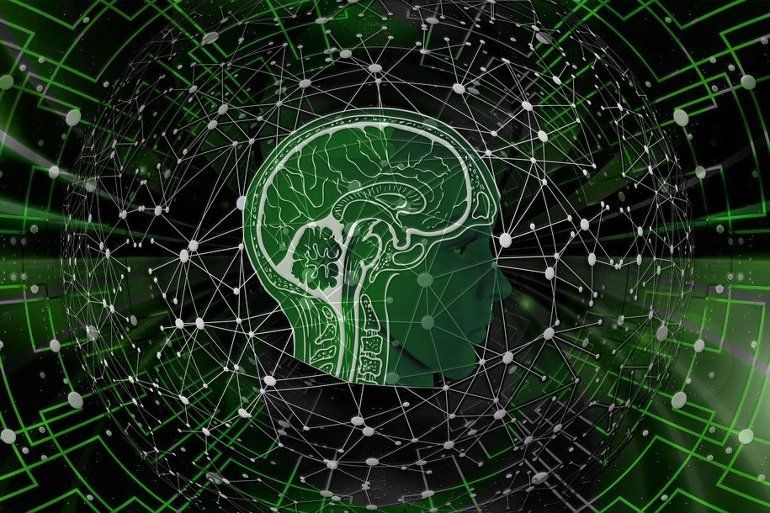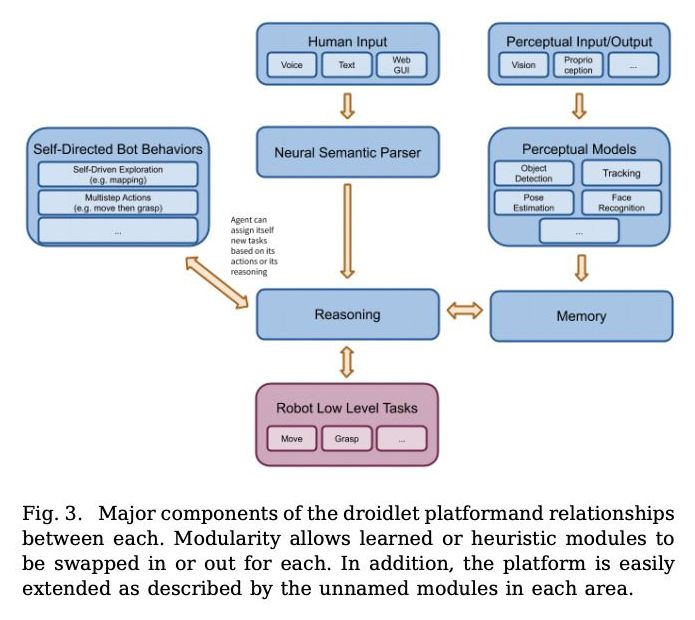😮
In the next year and a half, we’re going to see increasing adoption of technologies, which will trigger a broader industry shift, much as Tesla triggered the transition to EVs.
😮
In the next year and a half, we’re going to see increasing adoption of technologies, which will trigger a broader industry shift, much as Tesla triggered the transition to EVs.

Summary: Blood tests revealed specific epigenetic biomarkers for schizophrenia. Researchers applied machine learning to analyze the CoRSIVs region of the human genome to identify the schizophrenia biomarkers. Testing the model with an independent data set revealed the AI technology can detect schizophrenia with 80% accuracy.
Source: Baylor College of Medicine.
An innovative strategy that analyzes a region of the genome offers the possibility of early diagnosis of schizophrenia, reports a team led by researchers at Baylor College of Medicine. The strategy applied a machine learning algorithm called SPLS-DA to analyze specific regions of the human genome called CoRSIVs, hoping to reveal epigenetic markers for the condition.
The paper’s authors said they’ve created an endlessly challenging virtual playground for AI. The world, called XLand, is a vibrant video game managed by an AI overlord and populated by algorithms that must learn the skills to navigate it.
The game-managing AI keeps an eye on what the game-playing algorithms are learning and automatically generates new worlds, games, and tasks to continuously confront them with new experiences.
The team said some veteran algorithms faced 3.4 million unique tasks while playing around 700000 games in 4000 XLand worlds. But most notably, they developed a general skillset not related to any one game, but useful in all of them.

Robots today have been programmed to vacuum the floor or perform a preset dance, but there is still much work to be done before they can achieve their full potential. This mainly has something to do with how robots are unable to recognize what is in their environment at a deep level and therefore cannot function properly without being told all of these details by humans. For instance, while it may seem like backup programming for when bumping into an object that would help prevent unwanted collisions from happening again, this idea isn’t actually based on understanding anything about chairs because the robot doesn’t know exactly what one is!
Facebook AI team just released Droidlet, a new platform that makes it easier for anyone to build their smart robot. It’s an open-source project explicitly designed with hobbyists and researchers in mind so you can quickly prototype your AI algorithms without having to spend countless hours coding everything from scratch.
Droidlet is a platform for building embodied agents capable of recognizing, reacting to, and navigating the world. It simplifies integrating all kinds of state-of-the-art machine learning algorithms in these systems so that users can prototype new ideas faster than ever before!
DeepMind CEO and co-founder. “We believe this work represents the most significant contribution AI has made to advancing the state of scientific knowledge to date. And I think it’s a great illustration and example of the kind of benefits AI can bring to society. We’re just so excited to see what the community is going to do with this.” https://www.futuretimeline.net/images/socialmedia/
AlphaFold is an artificial intelligence (AI) program that uses deep learning to predict the 3D structure of proteins. Developed by DeepMind, a London-based subsidiary of Google, it made headlines in November 2020 when competing in the Critical Assessment of Structure Prediction (CASP). This worldwide challenge is held every two years by the scientific community and is the most well-known protein modelling benchmark. Participants must “blindly” predict the 3D structures of different proteins, and their computational methods are subsequently compared with real-world laboratory results.
The CASP challenge has been held since 1994 and uses a metric known as the Global Distance Test (GDT), ranging from 0 to 100. Winners in previous years had tended to hover around the 30 to 40 mark, with a score of 90 considered to be equivalent to an experimentally determined result. In 2018, however, the team at DeepMind achieved a median of 58.9 for the GDT and an overall score of 68.5 across all targets, by far the highest of any algorithm.
Then in 2020, version 2.0 of their AlphaFold program competed in the CASP, winning once again – this time with even greater accuracy. The AlphaFold 2.0 achieved a median of 92.4 across all targets, with its average margin of error comparable to the width of an atom (0.16 nanometres). Andrei Lupas, biologist at the Max Planck Institute in Germany who assessed the performances of each team in CASP, said of AlphaFold: “This will change medicine. It will change research. It will change bioengineering. It will change everything.”
Granted, it’s a little different for a robot, since they don’t have lungs or a heart. But they do have a “brain” (software), “muscles” (hardware), and “fuel” (a battery), and these all had to work together for Cassie to be able to run.
The brunt of the work fell to the brain—in this case, a machine learning algorithm developed by students at Oregon State University’s Dynamic Robotics Laboratory. Specifically, they used deep reinforcement learning, a method that mimics the way humans learn from experience by using a trial-and-error process guided by feedback and rewards. Over many repetitions, the algorithm uses this process to learn how to accomplish a set task. In this case, since it was trying to learn to run, it may have tried moving the robot’s legs varying distances or at distinct angles while keeping it upright.
Once Cassie got a good gait down, completing the 5K was as much a matter of battery life as running prowess. The robot covered the whole distance (a course circling around the university campus) on a single battery charge in just over 53 minutes, but that did include six and a half minutes of troubleshooting; the computer had to be reset after it overheated, as well as after Cassie fell during a high-speed turn. But hey, an overheated computer getting reset isn’t so different from a human runner pausing to douse their head and face with a cup of water to cool off, or chug some water to rehydrate.

Researchers at the University of Sydney and quantum control startup Q-CTRL today announced a way to identify sources of error in quantum computers through machine learning, providing hardware developers the ability to pinpoint performance degradation with unprecedented accuracy and accelerate paths to useful quantum computers.
A joint scientific paper detailing the research, titled “Quantum Oscillator Noise Spectroscopy via Displaced Cat States,” has been published in the Physical Review Letters, the world’s premier physical science research journal and flagship publication of the American Physical Society (APS Physics).
Focused on reducing errors caused by environmental “noise”—the Achilles’ heel of quantum computing —the University of Sydney team developed a technique to detect the tiniest deviations from the precise conditions needed to execute quantum algorithms using trapped ion and superconducting quantum computing hardware. These are the core technologies used by world-leading industrial quantum computing efforts at IBM, Google, Honeywell, IonQ, and others.

Experimental facilities around the globe are facing a challenge: their instruments are becoming increasingly powerful, leading to a steady increase in the volume and complexity of the scientific data they collect. At the same time, these tools demand new, advanced algorithms to take advantage of these capabilities and enable ever-more intricate scientific questions to be asked—and answered. For example, the ALS-U project to upgrade the Advanced Light Source facility at Lawrence Berkeley National Laboratory (Berkeley Lab) will result in 100 times brighter soft X-ray light and feature superfast detectors that will lead to a vast increase in data-collection rates.
To make full use of modern instruments and facilities, researchers need new ways to decrease the amount of data required for scientific discovery and address data acquisition rates humans can no longer keep pace with. A promising route lies in an emerging field known as autonomous discovery, where algorithms learn from a comparatively little amount of input data and decide themselves on the next steps to take, allowing multi-dimensional parameter spaces to be explored more quickly, efficiently, and with minimal human intervention.
“More and more experimental fields are taking advantage of this new optimal and autonomous data acquisition because, when it comes down to it, it’s always about approximating some function, given noisy data,” said Marcus Noack, a research scientist in the Center for Advanced Mathematics for Energy Research Applications (CAMERA) at Berkeley Lab and lead author on a new paper on Gaussian processes for autonomous data acquisition published July 28 in Nature Reviews Physics. The paper is the culmination of a multi-year, multinational effort led by CAMERA to introduce innovative autonomous discovery techniques across a broad scientific community.
And it did so on its own without a tether.
Cassie, a bipedal robot that’s all legs, has successfully run five kilometers on a single charge, all without having a tether. The machine serves as the basis for Agility Robotics’ delivery robot Digit, as TechCrunch notes, though you may also remember it for “blindly” navigating a set of stairs. Oregon State University engineers were able to train Cassie in a simulator to enable it to go up and down a flight of stairs without the use of cameras or LIDAR. Now, engineers from the same team were able to train Cassie to run using a deep reinforcement learning algorithm.
According to the team, Cassie teaching itself using the technique gave it the capability to stay upright without a tether by shifting its balance while running. The robot had to learn to make infinite subtle adjustments to be able to accomplish the feat. Yesh Godse, an undergrad from the OSU Dynamic Robotics Laboratory, explained: “Deep reinforcement learning is a powerful method in AI that opens up skills like running, skipping and walking up and down stairs.”
The team first tested Cassie’s capability by having it run on turn for five kilometers, which it finished with a time of 43 minutes and 49 seconds. Cassie finished its run across the OSU campus in 53:03. It took a bit longer because it included six and a half minutes of dealing with technical issues. The robot fell once due to a computer overheating and then again after it executed a turn too quickly. But Jeremy Dao, another team member from the lab, said they were able to “reach the limits of the hardware and show what it can do.” The work the team does will help expand the understanding of legged locomotion and could help make bipedal robots become more common in the future.
Links to biological age calculators:
Levine’s PhenoAge calculator is embedded as an Excel file:
Papers referenced in the video:
A new aging measure captures morbidity and mortality risk across diverse subpopulations from NHANES IV: A cohort study.
https://pubmed.ncbi.nlm.nih.gov/30596641/
Underlying features of epigenetic aging clocks in vivo and in vitro.
https://onlinelibrary.wiley.com/doi/full/10.1111/acel.
Population Specific Biomarkers of Human Aging: A Big Data Study Using South Korean, Canadian, and Eastern European Patient Populations.